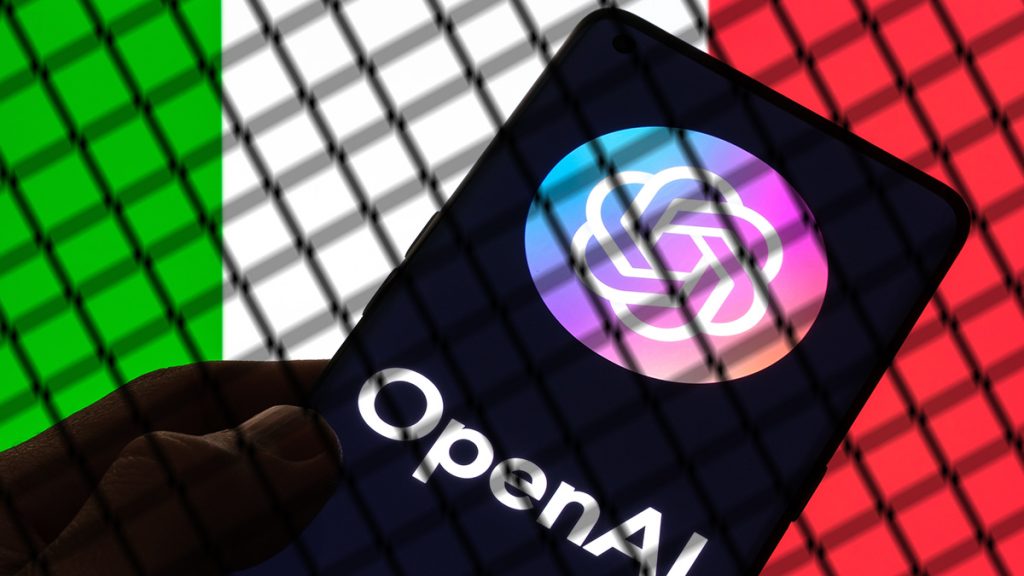
Italy’s recent move to ban ChatGPT, a popular chatbot powered by artificial intelligence (AI) developed by Open AI, has sparked a heated debate among European regulators. While some argue that Italy’s ban is driven by concerns over data privacy and compliance with the General Data Protection Regulation (GDPR), others suspect geopolitical factors are at play. As the first Western country to act against an AI-powered chatbot, Italy’s decision has inspired other European countries to examine the need for stricter measures to regulate generative AI companies. This article will delve deep into the privacy concerns raised by Italy’s Garante, the role of GDPR, and the reactions of other European regulators, shedding light on the potential motivations behind Italy’s ban on ChatGPT.
The ChatGPT Controversy
Italy’s Garante, an independent privacy regulator, has accused Open AI of failing to verify the age of ChatGPT users and raised concerns about the massive collection and storage of personal data to train the chatbot. The regulator has cited the absence of a legal basis justifying these practices, leading to questions about compliance with GDPR, which gives users control over their personal information. While some experts argue that GDPR offers tools for regulators to shape the future of AI, others point out that generative AI companies like Open AI operate in a complex regulatory landscape that may require further scrutiny.
Privacy regulators in other European countries have reached out to their Italian counterparts to understand the basis of the ban and explore potential violations in their own countries. France and Ireland have expressed interest in coordinating with EU data protection authorities on this matter, while Germany has indicated the possibility of following Italy’s lead and blocking ChatGPT due to data security concerns. However, Sweden’s privacy regulator has stated that it has no plans to ban ChatGPT, and Spain’s regulator has not received any complaints about the chatbot but has not ruled out future investigations.
The reactions of European governments to Italy’s ban on ChatGPT vary. Italy’s deputy prime minister has criticized the regulator’s decision as excessive, while a German government spokesman has stated that a ban would not be necessary. This difference in perspective highlights the tension between privacy regulators who advocate for more regulation and governments that may have more lenient attitudes toward AI technologies.
Open AI, the company behind ChatGPT, has taken the chatbot offline in Italy and has not yet responded to regulators’ inquiries. It has also stated that it actively works to reduce personal data in training its AI systems. However, concerns about the cyber security breach that led to unauthorized access to ChatGPT conversations and financial information of users have raised further questions about the privacy and security measures in place for generative AI technologies.
Some experts suggest that Italy’s ban on ChatGPT may not be limited to just one chatbot and that other AI platforms, such as Google’s Bard, could also face scrutiny. While ChatGPT has gained immense popularity, Google’s larger organization and history in Europe may have prompted them to be more cautious about compliance with privacy regulations.
Final Thought
Italy’s ban on ChatGPT has ignited a debate among European regulators about the motivations behind the decision. While concerns over data privacy and compliance with GDPR have been raised by Italy’s Garante, geopolitical factors and differing perspectives among European governments also come into play. As generative AI technologies continue to evolve, there is a growing need for robust regulations that balance innovation with user privacy and security. The outcome of Italy’s ban on ChatGPT and the responses of other European regulators will likely shape the future regulatory landscape for AI-powered chatbots and other emerging technologies.
Inside Telecom provides you with an extensive list of content covering all aspects of the tech industry. Keep an eye on our Intelligent Tech sections to stay informed and up-to-date with our daily articles.